
Friction Clutch Design
These friction surfaces may be: (1) flat and perpendicular to the axis of rotation, as in disc clutch, (2) cylindrical with the normal force in radial direction as in drum clutch or brake, and (3) conical-cone clutches. Often, a cone clutch tends. Get Machine Design now with the O'Reilly learning platform.

Friction Clutch Design MECHANICAL DESIGN PORTFOLIO Eduardo Santana
S H Sarje. Tate, Ravikiran M., and S. H. Sarje. "Design and Analysis of Clutch Plate for Automatic Single Plate Clutch." IJSRD-International Journal for Scientific Research & Development 3.09.

Friction Clutch Design
This study proposes a new design for a friction clutch actuator using the self-energizing principle for vehicle applications such that the power consumption for clutch control is significantly.
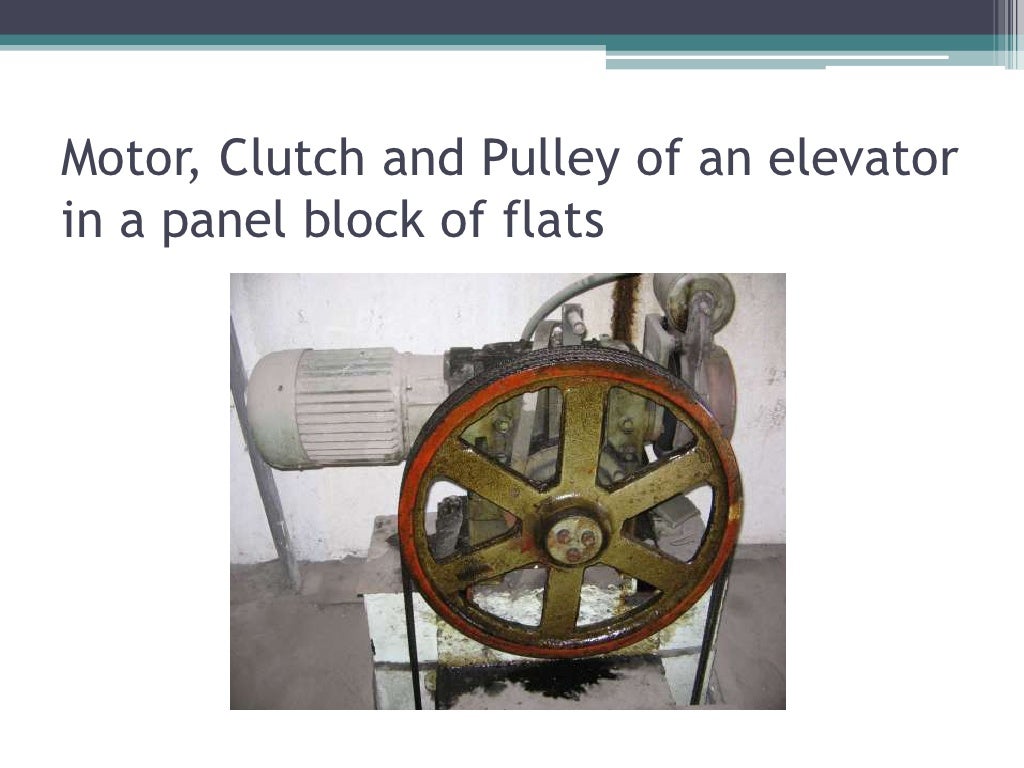
Friction Clutch Design
A single plate clutch is designed and modeled using Solid works 2018 software. Static analysis is done on the clutch to determine stresses and deformations using materials Ceramic, cast iron alloy.

Solidworks Tutorial 117 How to Design Spring Friction Clutch Plate by Solidworks Easy Design
The performance of a friction clutch is evaluated on the basis of various properties like structural properties, torque carrying capacity, and thermal properties. These properties vary considerably by using different friction materials in a clutch plate. Thus, for the optimal design of a clutch plate material selection plays a vital role.
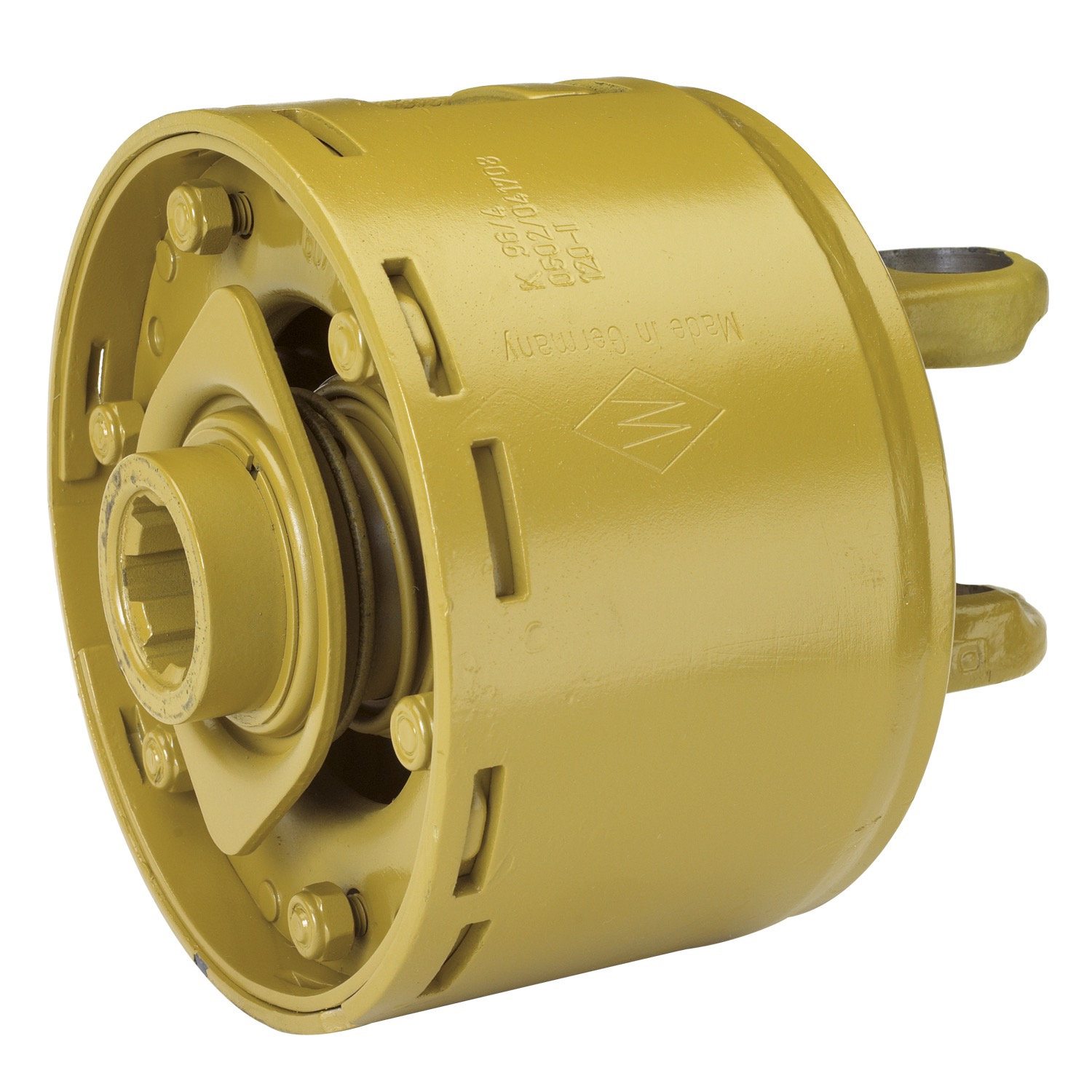
Walterscheid GmbH Walterscheid® Friction clutch 1386185
A friction clutch is a type of mechanical device that is used to transmit power from one rotating shaft to another. It works by creating friction between two surfaces, allowing the user to control the power transmission by adjusting the amount of friction between the surfaces. There are several advantages of using a friction clutch, including:
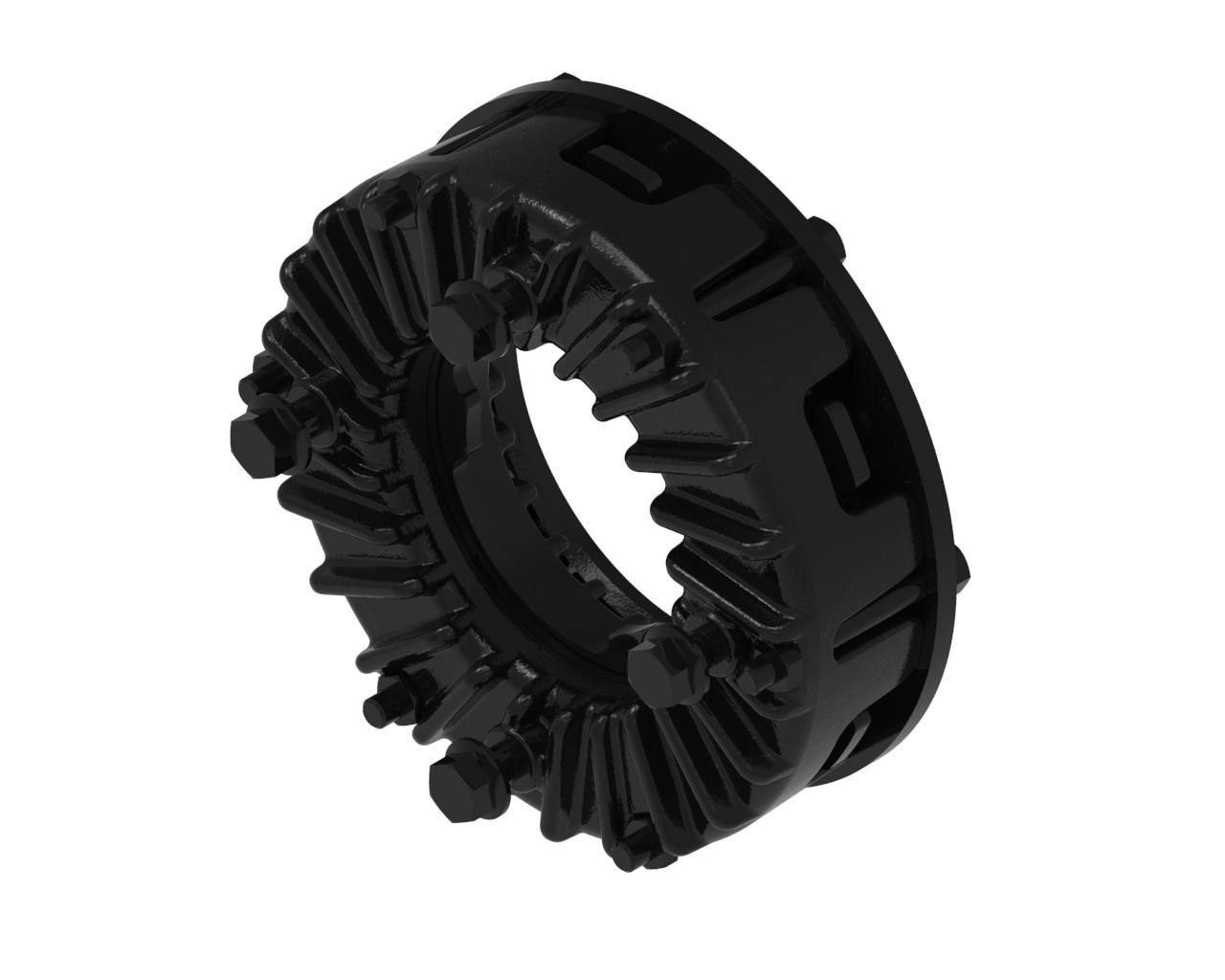
Torqmaster Friction Clutch Weasler Engineering, Inc.
A friction lock-up connection is created. This allows the engine torque to be directed via the flywheel and the pressure plate to the transmission input shaft. Clutch open When the clutch pedal is pressed, the release bearing is moved against the diaphragm spring load in the direction of the engine.
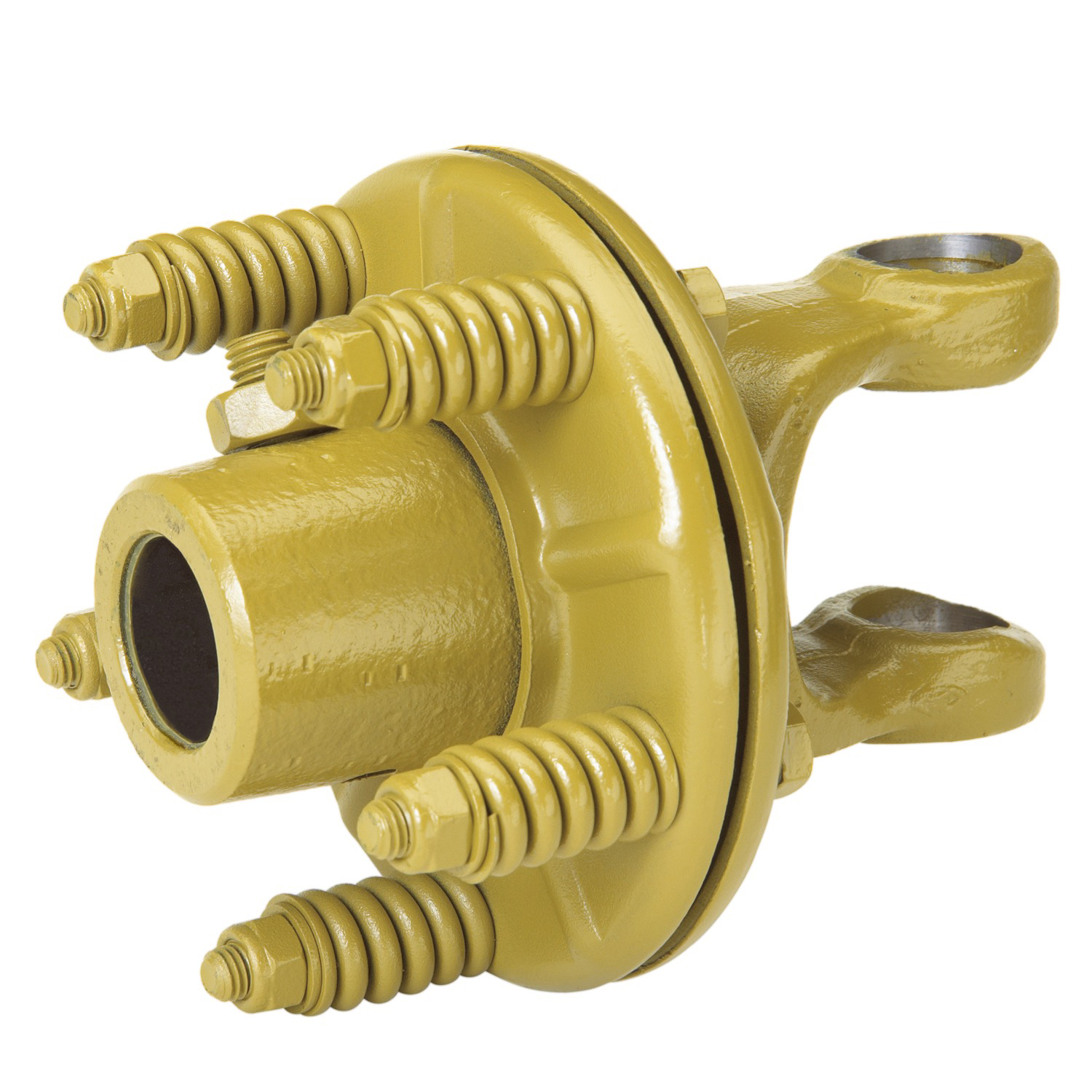
Walterscheid GmbH Friction clutch
• Gray iron clutch housing and pressure plate: - slip surfaces are controlled to be against iron for efficient heat dissipation and reliable friction coefficient (patented). - fins are incorporated to quickly dissipate heat and isolate it from other components. • Wear-compensating spring: - design allows the clutch friction
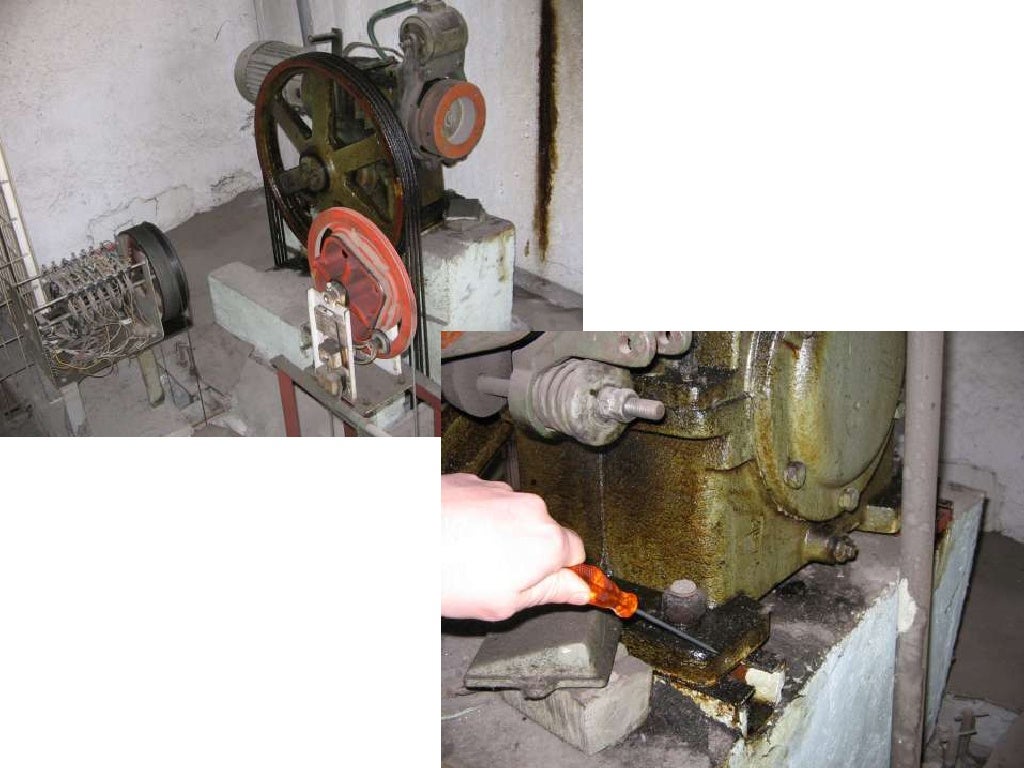
Friction Clutch Design
Most power transmission components use multiplate friction clutches to provide high power and smooth transmission characteristics; however, noise and vibration are generated by the friction between the clutch disc and plate, potentially decreasing rider comfort.

Torqmaster Friction Clutch Weasler Engineering, Inc.
Single plate friction clutch. The parts of a single plate clutch can be seen below .It has only one clutch plate, mounted on the splines of the clutch shaft. This is the most commonly used type. The flywheel is mounted on the crankshaft, and rotates with it. The pressure plate is fixed on the flywheel through the pressure plate is fixed on the.

Friction Clutch Design
Advantages of Friction Clutches: Precise Control: Friction clutches offer precise control over power transmission, making them ideal for applications that require accurate starts, stops, or speed adjustments. Compact Design: Their compact design allows them to be integrated into machinery with space constraints.
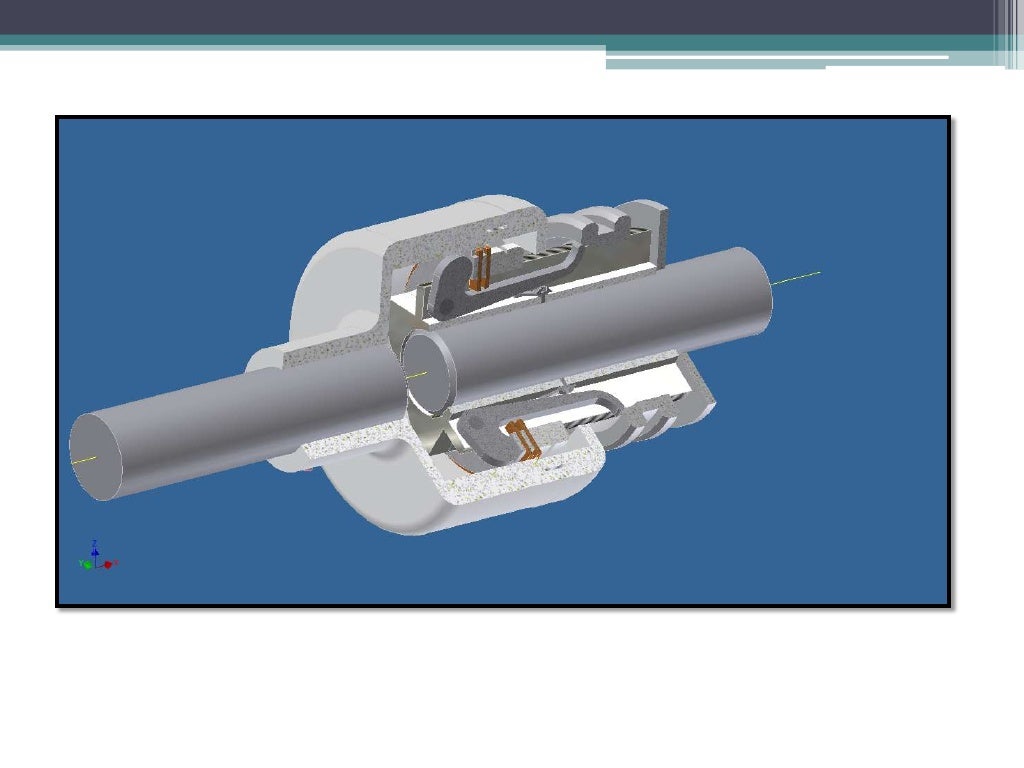
Friction Clutch Design
This paper presents a simplified friction clutch design, which consists of the dual Belleville spring and the friction plates. This design exploits the preset angle on the Belleville spring to increase the friction area during operation; thus, the load on spring is reduced at a given transmitted torque.
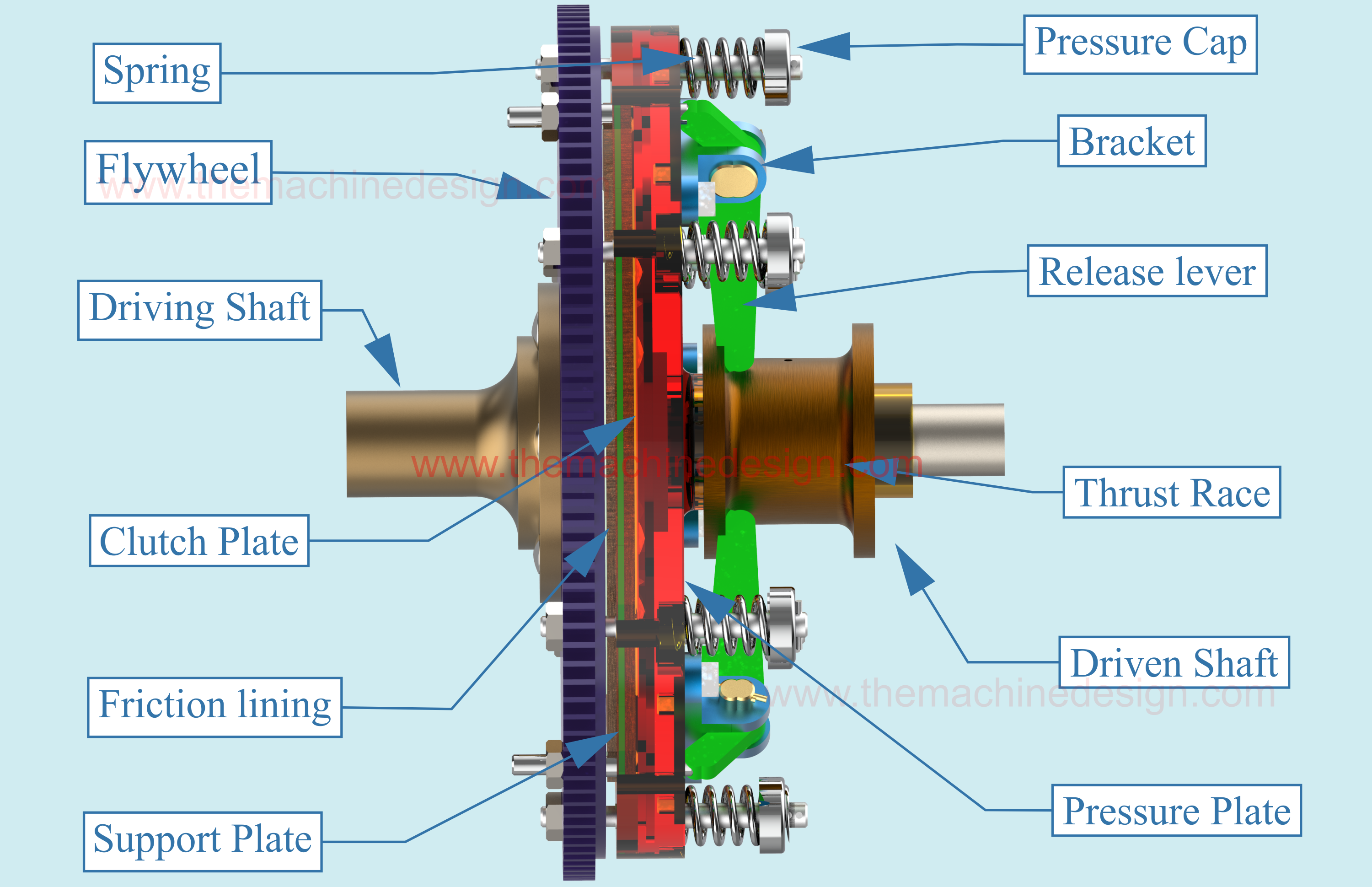
Single Plate Clutch Working, and Applications. The Machine Design
Design optimization of friction lining of a clutch plate DOI: Authors: Kartik Virmani VIT University Tanishq Madhogaria VIT University Baskar Ponnusamy VIT University Abstract and Figures.
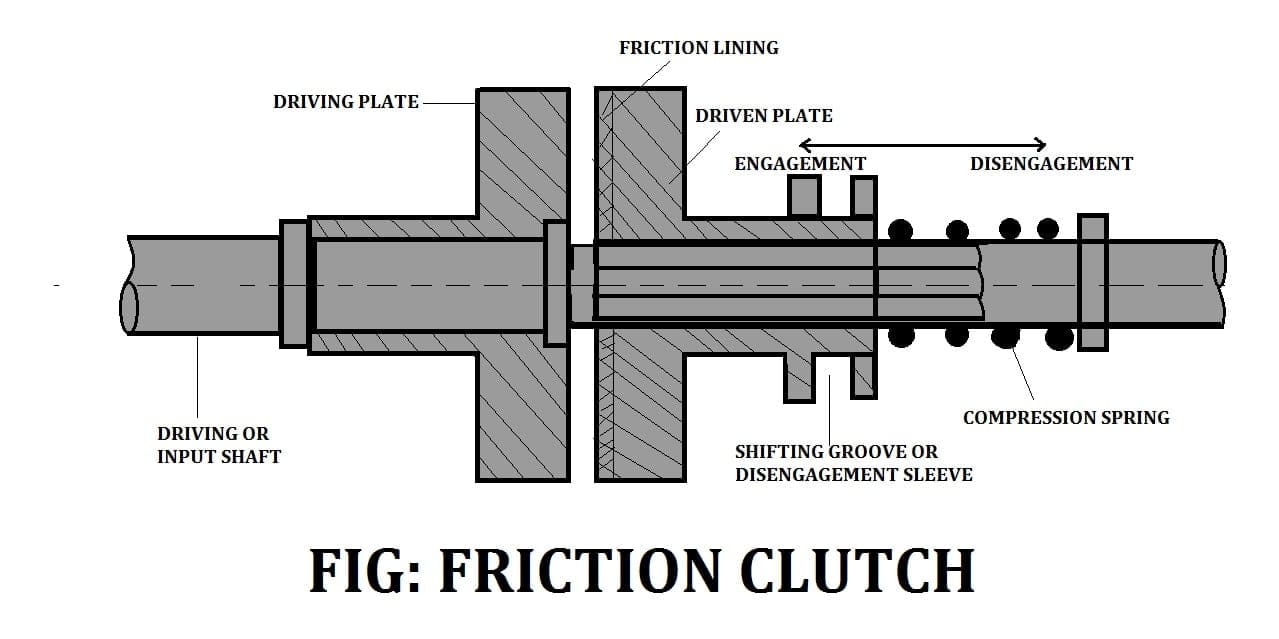
Different Types of Clutches Explained in Detail [Notes & PDF]
Design of single plate clutch T = Torque transmitted µ = Coefficient of friction r 1, r 2 = External and internal radius of contact surface. p = Intensity of pressure W = Total axial load There are two cases, uniform pressure and uniform wear. 1. Uniform pressure theory

Single plate friction clutch
This study proposes a new design for a friction clutch actuator using the self-energizing principle for vehicle applications such that the power consumption for clutch control is significantly reduced. The self-energizing effect can be created by simply adding wedge structures to a conventional clutch system, and it assists in significantly.

Sterling Instrument Announces Miniature Inline Slip Clutches that Feature Unique Multiplate Design
Clutch is a device used in the transmission system of a vehicle to engage and disengage the transmission system from the engine. Thus, the clutch is located between the engine and the transmission system. In a vehicle, the clutch is always in the engaged position.